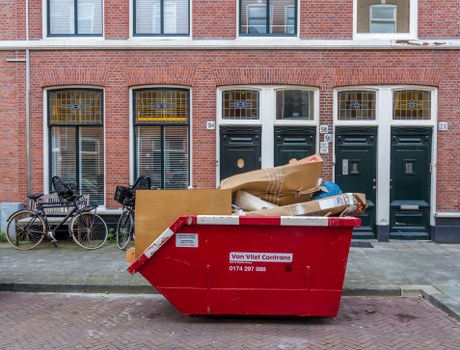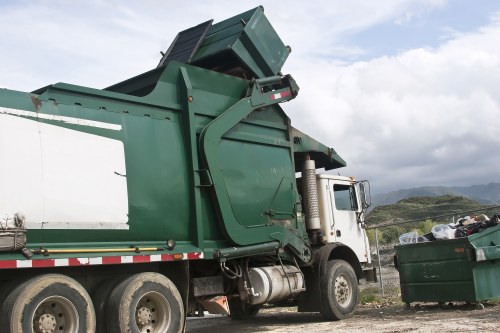Waste Collection in Disposal London
Understanding Waste Collection Services in London

Waste collection is a critical component of urban infrastructure, ensuring that cities like London remain clean, healthy, and environmentally sustainable. Effective waste management not only involves the collection of refuse but also the proper disposal and recycling of materials to minimize environmental impact.
In London, waste collection services are provided by a combination of private companies and local councils, each playing a vital role in maintaining the city’s cleanliness. These services range from regular household waste collection to specialized disposal of hazardous materials.
The efficiency of waste collection in London is influenced by various factors, including population density, the diversity of waste types, and the logistical challenges posed by the city’s sprawling urban landscape. Addressing these factors requires a coordinated approach that leverages technology, infrastructure, and community participation.
Types of Waste Handled in London

London's waste collection system handles a wide array of materials, each requiring specific handling and disposal methods. The primary categories include:
- Household Waste: General rubbish collected from homes, including kitchen waste, packaging, and non-recyclable materials.
- Recyclable Materials: Items such as paper, glass, metal, and certain plastics that can be processed and reused.
- Hazardous Waste: Dangerous substances like batteries, chemicals, and electronic waste that require specialized disposal.
- Organic Waste: Food scraps and garden waste that can be composted or used in biogas production.
- Bulky Waste: Large items like furniture and appliances that are collected separately due to their size.
Each category demands tailored collection strategies to ensure efficient handling and minimal environmental footprint. Proper segregation at the source by residents plays a crucial role in the effectiveness of these services.
Recycling Initiatives and Sustainability

Recycling is a cornerstone of London’s waste management strategy, aiming to reduce the volume of waste sent to landfills and promote the reuse of materials. The city has implemented numerous initiatives to encourage recycling among residents and businesses alike.
Key recycling programs in London include the Blue Bin Scheme, which focuses on paper, cardboard, and glass collection, and the Green Bin Scheme, dedicated to organic waste. Additionally, comprehensive campaigns educate the public on proper sorting techniques to enhance the effectiveness of recycling efforts.
Moreover, London is exploring innovative recycling technologies, such as anaerobic digestion and advanced sorting facilities, to further improve material recovery rates. These advancements not only support environmental goals but also create economic opportunities within the recycling sector.
Challenges in Waste Collection

Despite robust systems, waste collection in London faces several challenges that need continuous attention:
- Population Growth: Increasing population density leads to higher waste volumes, straining existing collection capacities.
- Waste Diversification: The variety of waste types complicates collection and recycling processes, requiring more sophisticated sorting mechanisms.
- Infrastructure Limitations: Aging waste management infrastructure may not keep pace with the evolving demands of the city.
- Environmental Regulations: Stringent regulations necessitate constant adaptation of waste collection practices to ensure compliance.
- Public Participation: Achieving high rates of waste segregation and recycling relies heavily on active participation from residents.
Addressing these challenges involves investment in infrastructure, adoption of new technologies, and ongoing public education to foster a culture of sustainability.
Technological Advancements in Waste Management

Technology plays a pivotal role in modernizing waste collection in London. Innovations such as smart bins, GPS tracking for collection vehicles, and data analytics are transforming how waste is managed.
Smart bins equipped with sensors can monitor fill levels in real-time, optimizing collection schedules and routes. This reduces fuel consumption, lowers emissions, and ensures timely waste removal. Additionally, GPS tracking systems enable waste management companies to monitor vehicle performance and improve operational efficiency.
Data analytics provide valuable insights into waste generation patterns, helping policymakers and businesses make informed decisions to enhance sustainability efforts. By harnessing technology, London is paving the way for a more efficient and environmentally friendly waste collection system.
Community Engagement and Education

Effective waste collection relies not only on infrastructure and technology but also on the active involvement of the community. Educating residents about proper waste segregation, recycling practices, and the environmental impact of waste is essential.
Local councils and waste management companies organize workshops, distribute educational materials, and run awareness campaigns to promote responsible waste disposal. Engaging schools, businesses, and community groups fosters a collaborative approach to waste management.
Incentive programs, such as rewards for high recycling rates or penalties for non-compliance, encourage participation and reinforce positive behaviors. Building a culture of environmental stewardship ensures the long-term success of waste collection initiatives in London.
Future Outlook for Waste Collection in London

The future of waste collection in London is geared towards greater sustainability, efficiency, and innovation. Key trends shaping this future include:
- Circular Economy: Transitioning to a circular economy model where waste is minimized, and materials are continuously reused and recycled.
- Zero Waste Goals: Ambitious targets to eliminate landfill use and significantly reduce overall waste production.
- Advanced Recycling Technologies: Investment in cutting-edge technologies to enhance material recovery and processing capabilities.
- Public-Private Partnerships: Collaboration between government entities and private companies to leverage expertise and resources for waste management solutions.
- Legislative Support: Strengthening regulations and policies to support sustainable waste collection practices.
By embracing these trends, London aims to establish itself as a leader in waste management, setting benchmarks for other cities worldwide.
Conclusion
Waste collection in Disposal London is a multifaceted system that plays a crucial role in maintaining the city’s cleanliness, health, and sustainability. Through a combination of effective services, technological advancements, and active community participation, London continues to improve its waste management practices.
Addressing the challenges of population growth, waste diversification, and infrastructure demands requires ongoing innovation and collaboration. As the city moves towards a more sustainable future, the evolution of waste collection services will remain a key component of its environmental strategy.
For residents and businesses in London, understanding and participating in waste collection initiatives is essential for fostering a greener, cleaner, and more resilient urban environment.
Contact us today to learn more about how you can contribute to efficient waste management and sustainability in London.